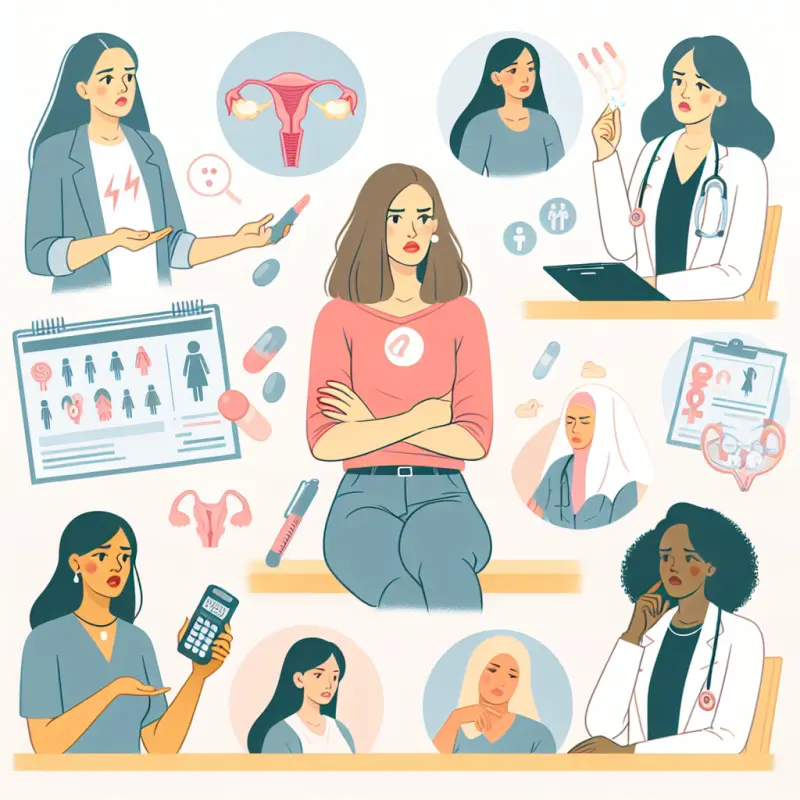Hormonal Imbalance in Women: Signs, Diagnosis, and Solutions

Hormonal Imbalance in Women: Signs, Diagnosis, and Solutions
Introduction
Hormones are chemical messengers that regulate nearly every process in the body. When they are out of balance, women can experience a wide range of symptoms that affect their physical, emotional, and reproductive health. This article delves into the signs of hormonal imbalance, how it is diagnosed, and evidence-based solutions.
What is Hormonal Imbalance?
A hormonal imbalance occurs when there is too much or too little of a hormone in the bloodstream. Even small changes can have significant effects on the body.
Common Causes of Hormonal Imbalance
- Polycystic Ovary Syndrome (PCOS)
- Thyroid disorders (hypothyroidism, hyperthyroidism)
- Perimenopause and menopause
- Stress and adrenal fatigue
- Diabetes and insulin resistance
- Medications and contraceptives
- Pituitary gland disorders
Signs and Symptoms of Hormonal Imbalance
- Irregular or missed periods
- Unexplained weight gain or loss
- Fatigue and low energy
- Mood swings, anxiety, or depression
- Sleep disturbances
- Acne or skin changes
- Hair loss or thinning
- Hot flashes and night sweats
- Decreased libido
- Breast tenderness
How is Hormonal Imbalance Diagnosed?
- Medical History and Symptom Review
- Physical Examination
- Blood Tests: To measure levels of estrogen, progesterone, testosterone, thyroid hormones, cortisol, and insulin.
- Imaging Tests: Ultrasound or MRI if a tumor or structural issue is suspected.
Solutions for Hormonal Imbalance
Lifestyle Changes
- Balanced Diet: Emphasize whole foods, healthy fats, lean proteins, and fiber.
- Regular Exercise: Supports hormone regulation and stress reduction.
- Stress Management: Mindfulness, yoga, and adequate sleep.
Medical Treatments
- Hormone Replacement Therapy (HRT): For menopause or severe imbalances.
- Medications: Thyroid medications, insulin sensitizers, or birth control pills.
- Treating Underlying Conditions: Such as PCOS or thyroid disorders.
Natural and Complementary Approaches
- Herbal Supplements: Such as chasteberry, maca root, or evening primrose oil (consult a healthcare provider first).
- Acupuncture: May help with symptoms like hot flashes and mood swings.
When to See a Doctor
Persistent symptoms or those that interfere with daily life warrant a visit to a healthcare provider for evaluation and treatment.
Conclusion
Hormonal imbalances are common and treatable. Early recognition and a holistic approach can restore balance and improve quality of life.
Moone — Supporting you on your cycle journey.